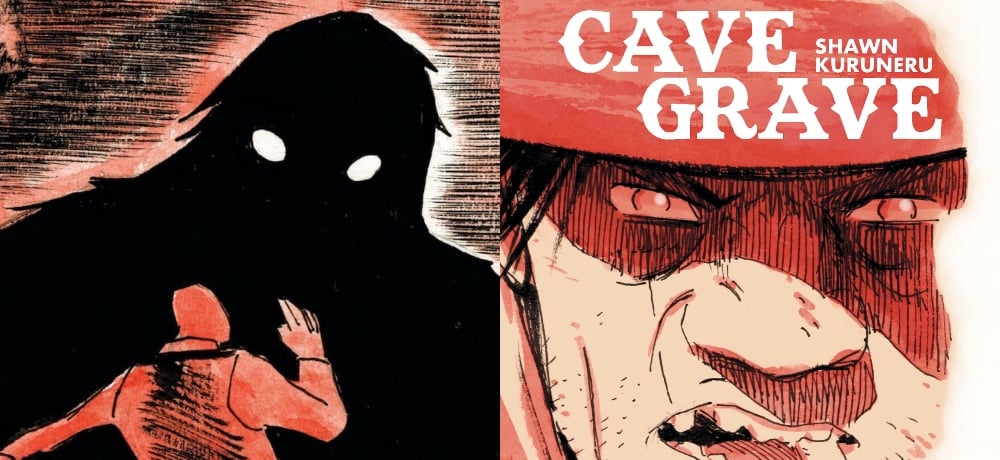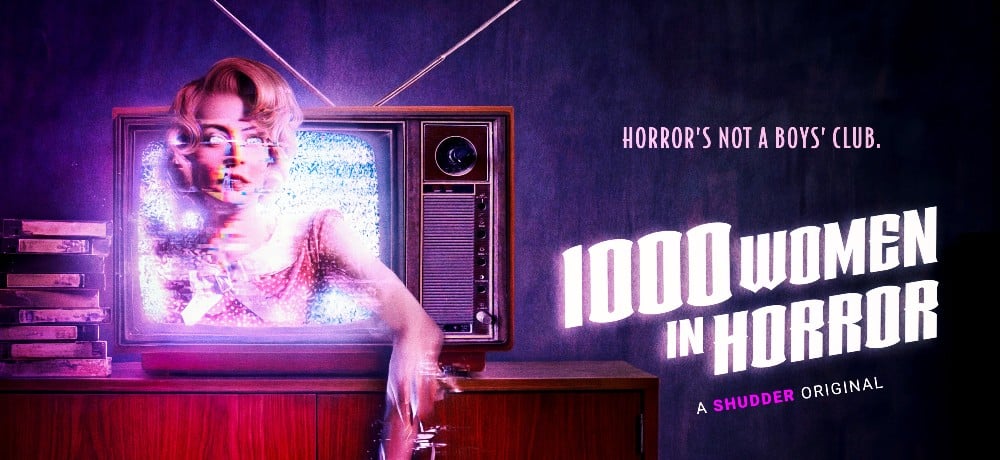





February has been a busy month, as there have been a ton of indie genre offerings coming out each and every week, and I had a chance to check out a trio of recent titles: The Cured from Irish filmmaker David Freyne, the quirky romance/body horror hybrid Are We Not Cats, and Derek Nguyen’s gothic romance, The Housemaid.
The Cured: Right from the start, it is evident that writer/director David Freyne wasn’t looking to make a typical zombie movie, as The Cured begins its story at a juncture where most filmmakers never venture: a deadly zombie outbreak has been curbed after a cure has been discovered, and those no longer afflicted by the disease are able to rejoin the general population. Of course, this causes a myriad of problems, as society doesn’t exactly welcome the former flesh eaters back with open arms, causing a deep political chasm to widen between the two groups, leading to acts of violence and terrorism, and forever changing the lives of those in Ireland, who have been hit the worst by the zombie plague.
We identify with the plight of the infected via Senan (Sam Keely), who returns home to live with his sister-in-law, Abbie (Ellen Page), a journalist documenting the political strife consuming the communities at large post-outbreak. At first, Senan is slightly optimistic about being able to receive a second chance, but his buddy Conor (Tom Vaughan-Lawlor), who is also amongst the cured, is out to show his friend that society still sees them as nothing more than monsters. Conor’s deeply rooted anger causes him to take radical actions towards the military that abused him and those never affected by the virus, leaving Senan conflicted about what his place is in this new world, and just who is looking out for his best interests as he tries to rebuild his life.
Many of the best zombie films over the last five decades have acted as a metaphor for something much bigger than the genre itself (with Night of the Living Dead blazing that path first), and The Cured is no different, with Freyne tapping into a multitude of current and timeless social issues through his thoughtfully crafted script. Utilizing Ireland as the backdrop to The Cured, Freyne has also made something that feels wholly relevant to the issues that have prominently plagued that country in particular, but it also feels universally applicable to anywhere in the world right now (and especially here in the States, where things like recidivism and the rehabilitation of prisoners have never quite been dealt with properly). Freyne walks an incredibly hard line in The Cured, too, making it easy to empathize with both sides of the central conflict, resulting in a compelling and important piece of work from the first-time feature filmmaker.
Anchored by a trio of strong performances from Keely, Page, and Vaughn-Lawlor (who first popped up on my radar about five years ago via Lorcan Finnegan’s short film Foxes), The Cured may not necessarily be a romp-’em-stomp-’em zombie flick with copious amounts of blood and gore, but it’s still a powerful confrontation of many of the complicated socio-political affairs at the forefront of the news these days, and that was enough to keep me intrigued from start to finish.
Movie Score: 3.5/5
---------
Are We Not Cats: While this may be something of a “fringe” genre effort that only briefly dabbles in some wonderfully gruesome body horror aspects, Xander Robin’s Are We Not Cats is an intriguing, grungy romantic drama that I enjoyed, even if its exploration of co-dependency doesn’t necessarily dig as deep into the connections of the characters as it could have. There is a compelling sense of intimacy to the concepts that Robin explores here via his star-crossed lovers, making Are We Not Cats one of the more unique cinematic love stories involving an oversized trichobezoar (basically, a human hairball) that I’ve ever seen.
Within the span of one day, Eli’s (Michael Patrick Nicholson) life has gone completely off the rails: he finds out his girlfriend has been seeing someone else, he loses his gig as a garbage man, and his parents (who he still lives with) have sold their house, ultimately leaving him no other choice but to take up residency in the back of a hand-me-down moving truck Eli hopes to use to start a new business as a professional mover. On his first job, he crosses paths with the mysterious Anya (Chelsea Lopez), and after being immediately taken in by her quirky charms, he sets out to befriend her, but gets far more than he bargained for once he learns Anya’s dark secret: she loves to eat hair, and it's an obsession that comes with some pretty gnarly side effects for both Anya and anyone else she gets close to.
Even though it embraces a somewhat all-too-familiar poverty chic aesthetic that seems to be all the rage these days in indie films of any genre, it’s DP Matt Clegg who transforms Are We Not Cats into something so wonderfully weird on a visual level, that you can’t help but become smitten by Eli and Anya’s blossoming, albeit highly unconventional, relationship. Both Nicholson's and Lopez’s portrayals of two broken people who seem to be otherwise lost in the world without each other are highly engaging and easily relatable, elevating Are We Not Cats beyond an otherwise somewhat shallow script that treats every other character in the story as either a plot device or a caricature of sorts.
The genre elements to Are We Not Cats are admittedly few and far between, but when we get to “that moment” (which, if you see the film, you’ll know what I’m talking about), it’s such a visceral and gag-inducing scene, that I would say it’s right up there with any of the great body horrors that Cronenberg has crafted throughout his career.
Movie Score: 3/5
---------
The Housemaid: In The Housemaid, there’s an intoxicating power to writer/director Derek Nguyen’s classic ghost story that takes hold immediately, never once loosening its ghastly grip until the film’s shocking final moments. As someone who wouldn’t define herself as a huge fan of supernatural-themed movies, The Housemaid really surprised me, with Nguyen confidently tapping into the horrors of the past to create a palpable sense of dread and terror, making for an ambitious Gothic horror experience (with a bit of a sensual flair), that would feel right at home alongside recent films like Crimson Peak, The Woman in Black, or even the original Dark Shadows TV series (minus the melodramatics).
Transporting viewers back to French Indochina in 1953, The Housemaid introduces us to a young woman named Linh (Kate Nhung), who has no living family members left, and has traveled a great distance (while shoe-less) to try and procure herself a job at the Sa Cat rubber plantation owned by Captain Sebastien Laurent (Jean-Michel Richaud). She’s hired immediately by the estate’s housekeeper (Kim Xuan), who warns Linh that the reason it’s been so hard to keep employees around the property is due to the fact that it is haunted—a frightening fact has effectively scared most workers away. Linh is undeterred by the warnings and settles into her new position as the housemaid to Laurent, but the two develop a connection that goes much deeper than just a woman playing servant to her master. They begin a passionate affair, which seems to awaken a spirit from Laurent’s past: an apparition who will stop at nothing to destroy everyone who dares to enter the Sa Cat homestead. And as the saying goes, the past can’t stay buried forever.
I don’t want to say too much about The Housemaid’s story, because the film features several nifty reveals that make Nguyen’s efforts such a worthwhile experience for genre fans, and I wouldn’t want to take that away from anyone who sees this. Suffice to say though, that just when you think you have The Housemaid pegged, Nguyen busts out a few tricks, transforming his debut directorial feature into something more than just “yet another ghost story.” The gorgeous and sumptuous cinematography from DP Sam Chase also does an extraordinary job of not only evoking an unsettling and haunting atmosphere around the film’s primary location, but also transforming the locale into something of an oversized tomb, capturing the dreariness, sadness, and death that has become a part of the plantation’s legacy over time.
While all the performances in The Housemaid are excellent, it’s Nhung who shines brightest with her incredibly nuanced portrayal of a woman caught between her emotions and her sense of duty—something that was challenging for a variety of reasons (to reveal exactly why would venture into spoiler territory). As a whole, The Housemaid is a remarkably assured horror film from Nguyen, who creates something special on a number of levels: it’s a ghost story out of Vietnam, and that’s a country that generally doesn’t allow movies about ghosts to be made there (especially ones involving vengeful apparitions); it features some of the best production design I’ve seen from a project at this budgetary level (kudos to designer Jose Mari Pamintuan); and, even though its setting may be some 65 years ago in a country far from the United States, there’s a timeless universality to Nguyen’s tragic and chilling tale that parallels many moments in American history as well. If you’ve been feeling a bit ho-hum about supernatural movies as of late, I’d recommend giving The Housemaid a try. It may just surprise you as much as it did this writer.
Movie Score: 4/5